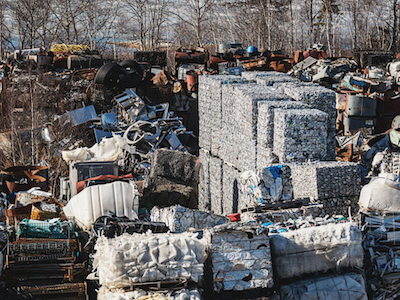Market

February 22, 2024
Hoffman on scrap: Weak Japanese yen weighs on West Coast export market
Written by Philip Hoffman
Having just attended the historically significant ISRI Mid-America Chapter Consumers Night Banquet in St. Louis and waiting for my delayed flight, it seemed I had the perfect opportunity to inform the industry of a few items that came out while wheeling and dealing in the beautiful St. Louis Union Station Hotel.
For the West Coast export market, Tet/Chinese New Year ended on Monday and buyers were just coming back to the market. Before the holiday, buyers tried to push prices down to $370 per metric ton (mt) CFR Taiwan level for containerized HMS. But most West Coast suppliers are not accepting this… for now. However, an unconfirmed sale was made at $372/mt. Dealers maintain that no deals were done below $375-380/mt, and they are resisting selling. However, it is possible that the weaker players (those in constant need of cash) did break and sell at the lower $372/mt CFR Taiwan price.
Overall and throughout 2024 to date, the East/Southeast Asia ferrous export market has had a cap mainly due to the weakness of the Japanese steel market and the weakness of the Japanese Yen (JPY) versus the U.S. dollar (USD). The Asian ferrous market is mainly derivative of the Japanese scrap market. Some perspective: In 2023, Japan exported 7 million tons of ferrous scrap to Asian destinations while the U.S. exported 4.3 million tons. The stronger the Japanese domestic market is, the less Japanese export scrap goes into other countries in the region.
The Japanese domestic versus the export market is significantly contingent on the value of the JPY versus the USD. The weaker the JPY gets versus the USD, the more competitive Japanese scrap becomes versus U.S. scrap. For example, in January 2023, the JPY hit a strong Y128 versus USD. But starting in late May, the JPY weakened – hitting 141 and held onto the 140-150 range for the rest of 2023. That continues today. The weakness in the JPY versus the USD led to a huge increase of Japanese scrap imports to Taiwan and Vietnam in 2023 (up 55% and 28% YOY respectively in 2022/2023). Taiwan and Vietnam are the two largest destination nations for U.S. scrap exports from the West Coast to East Asia. As long as the JPY exchange rate remains weak (140-150 JPY/USD range), the U.S. scrap export market to Asia has a cap barring any unforeseen market shocks.
Within the 140 to 150 range, the JPY/USD exchange rate strengthened from 151 on November 10 to 141 on December 31. Thus, from November 1 to December 31, Japanese scrap became more expensive versus U.S. scrap. We saw a corresponding price increase for U.S. scrap exporters. However, this was short-lived. As of early January 2024, the JPY rate weakened again and is now at 150. This has made Japanese short sea scrap cheaper than U.S. scrap CFR Taiwan and Vietnam than it was in November and December of 2023. It has also has put renewed downward pressure on US scrap prices to Asia since early January.
As of today, short sea Japanese H1/H2 (HMS 80/20) scrap to Vietnam is $395-400/mt CFR, which pushes U.S. containerized scrap down to $380-385/mt CFR Vietnam. The $10-$15/mt price differential between container vs bulk shipments is because container scrap costs $10-$15/mt more to truck and handle at the discharge ports than do shipments made by bulk
In summary, dealers on the West Coast expect export prices to rise this week as buyers return to the market. But any increase could be short-lived. In addition to the weak JPY, exporters are also facing rising container freight rates due to issues both in the Red Sea and the Panama Canal. Given the weakness in the Japanese Yen and expected freight rate increase, I wouldn’t hold my breath for any significant increase in U.S. ferrous scrap export prices from the U.S. to Asia. And if a bounce does occur, take the order because it may not last long.
The views, thoughts, and opinions expressed in the content above belong solely to the author and do not necessarily reflect the opinions and beliefs of Scrap Recycling Update or its parent company, CRU Group.





